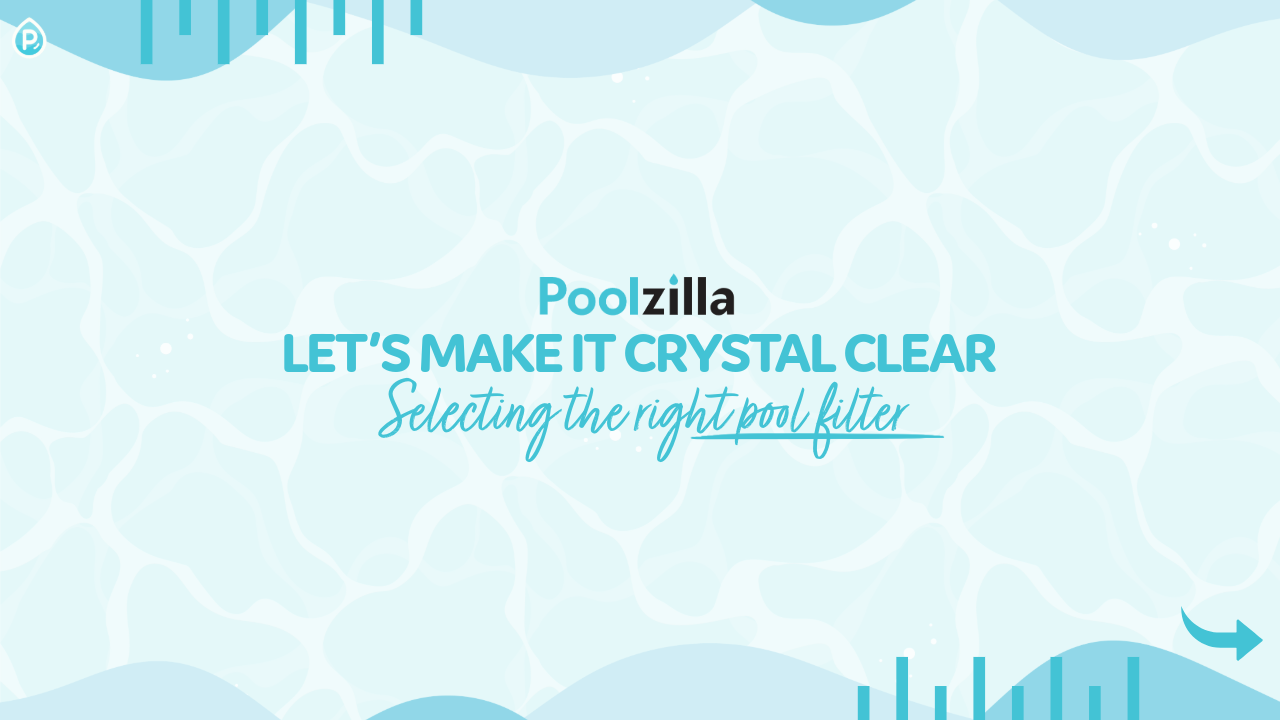There are three primary filters to choose from; cartridge, sand, and DE filters. You’ll likely want a filter that offers dirt-trapping technology, balances your flow rates, is easy to maintain, and is built to last. But, how do you know which is best for you? To make an informed decision on the right type of filter for your pool, let’s dive into the options.
Types of Pool Filters
Cartridge Filters:
Cartridge filters use a pleated material to capture contaminants. The pleats in most cartridge filter models are a secret feature intended to create additional surface area for the filter to trap particles and contaminants. They provide great filtration, are low maintenance, and are suitable for home pools. These filters work simply, the water is filtered through the system’s skimmer capturing large debris before the water runs through the cartridge filter. The fabric clings to the remaining dirt, pushing clean water through the system.
Sand Filters:
Sand Filters use sand as the primary medium to capture debris and contaminants. When in use, the pool water runs through the inlet pipe and is distributed into the tank’s head. The sand catches the debris when filtering the water, and then it is filtered back into the pool through the system’s pick-up unit and outlet pipe. They are a common choice for residential pools with moderate debris levels.
Diatomaceous Earth (DE) Filters:
DE filters use a powder made from fossilized remains of diatoms that trap micro-particles and act as the pool’s main filter. To apply, it’s added to the skimmer and dissolves on its own through the system before coating the filter grids. The contaminants are then filtered through the DE, which collects and traps microscopic debris, making them ideal for pools with high debris levels.
Pool Size & Flow Rate
The size of your pool is valuable to consider when choosing a filter, a larger pool may require a filter with a higher flow rate than a smaller pool. The flow rate is how much time the water takes to circulate in your pool. A filter that isn’t compatible with your pool size and flow rate can lead to frequent filter replacements and poorly filtered water.
Maintenance
Your filter will require regular upkeep, no matter the model. The cartridge filter; typically requires cleaning every three to four months. However, this can vary based on factors such as pool size, weather conditions, debris, and pool usage. Keeping an eye on the pressure gauge is the most accurate way of knowing when it is time for a clean, if it rises to 8-10 psi you should get prepared for a backwash.
Compared to sand filters that may require as frequently as every two months, you should only perform a clean when your pump reaches a water pressure of 8-10 psi over its average operating pressure level.
DE filters while providing the best filtration, need significantly more attention during cleaning; it’s recommended to perform a total clean once a month, or when the pressure gauge is 8-10 psi above normal.
Cost Considerations
Considering that the cost isn’t just for the initial purchase, their future maintenance is also important. While sand filters usually have lower initial costs, cartridge and DE filters may offer long-term savings due to their lower maintenance needs.
Local Conditions
Your local water conditions can impact the performance of different filter types. DE filters, for instance, work well in areas with hard water. On the other hand, areas with soft water have different requirements for removing minerals and contaminants effectively. Before deciding, check local regulations and requirements regarding backwashing and disposing of DE.

By considering pool size, flow rate, maintenance needs, and durability, you can ensure your filter is capable of providing you with clean and clear water for your family. Poolzilla filters feature premium fabric with optimized debris-catching capabilities, for longer filter cycles and less cleaning. Even with significant buildup, our filters are designed to maintain your flow rate throughout the season.

